Strategic Proximity:
Lessons from Chile
Vitrina Dystópica
Other languages: Español
The high-stakes politics of collapse
In the distant corners of an already difficult to reach park in Vitacura1, a giant billboard exclaims in menacing terms: “Our glaciers are at their minimum!” Do they speak of “our” glaciers because they have already purchased them? Or are they trying to elicit some sort of feeling of collective belonging? If so, it would be every bit as artificial as the company’s concern to begin with. After all, the artificial pond this same company installed in Parque Bicentenario will certainly “ensure water supply,” but only for the extremely privileged district in which it is located. A little ways down the road, another subterranean pond has been installed between the neighborhood of Providencia and downtown Santiago. At a cost of 3.25 billion pesos, it’s just slightly cheaper than the previous one, and is expected to serve seven districts and a total of 205,000 people. In fact, of the various initiatives designed to mitigate the inevitable drought to come — to say nothing of outright looting2 — only those that are located in the richest areas will provide water exclusively for them. On the other side of the tracks (both socially and symbolically) there is Petorca, a region 220 kilometers from Santiago, where agricultural extractivism has given way to water-supply mafias: those who distribute a deficient amount of water in cistern trucks paid with emergency state funds are the same ones who have privatized it. Through rights acquired under the Pinochet Constitution, they not only irrigate the fields where they are destroying the land, exploiting temporary laborers and martyring migrants, but they also sell “their” surplus water to the same people they have stolen it from. Although this case is specific, it is just a sample of what can legitimately be described as the administration of ruin. This is what is at stake, in one way or another, everywhere today.
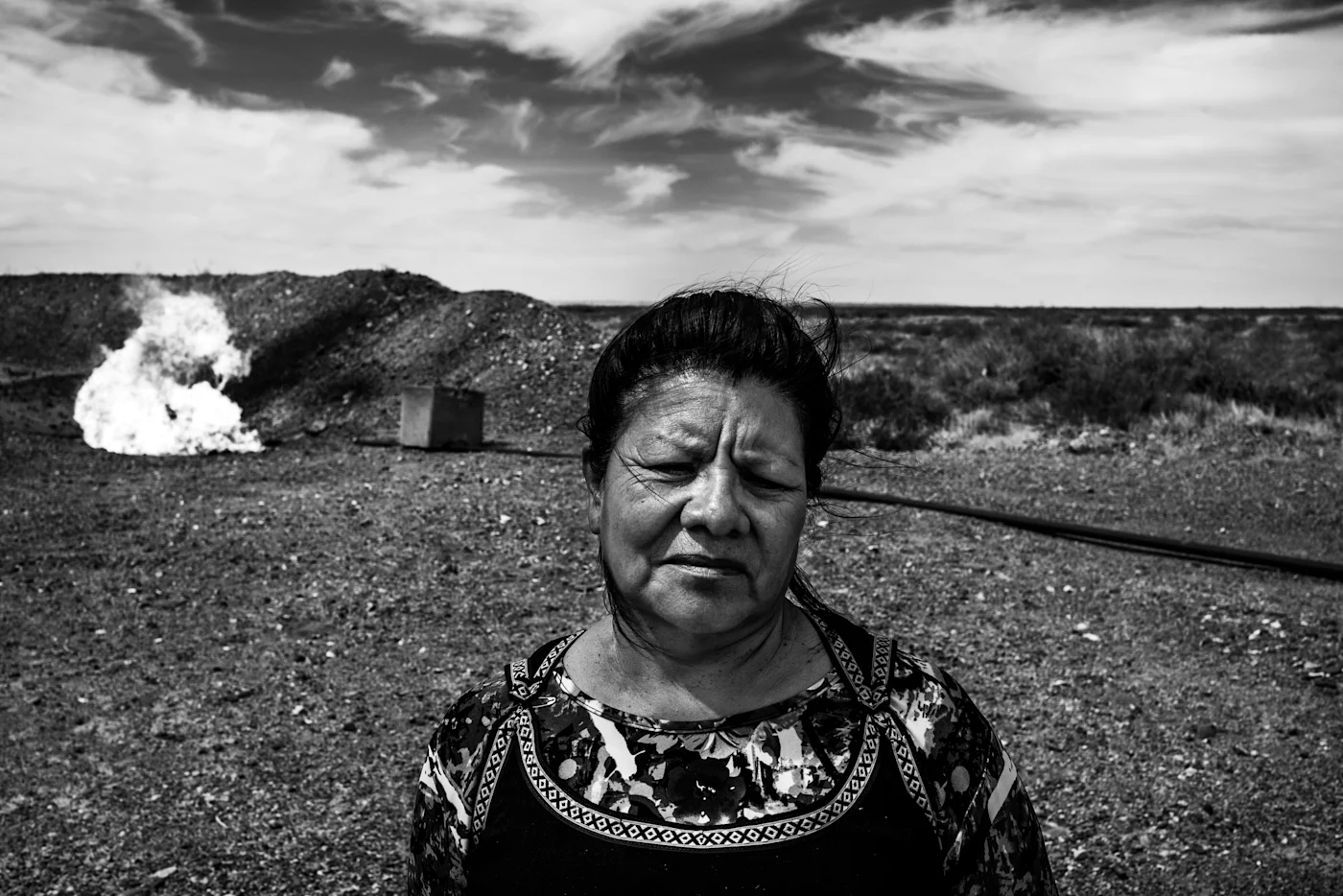
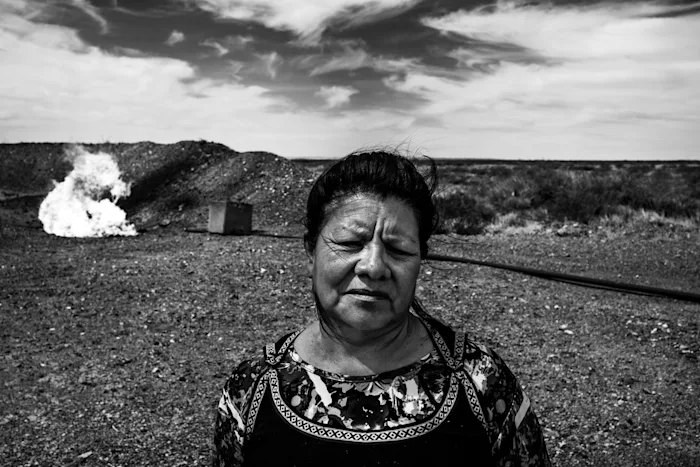
If this restless, churning tension — to the point of exploding — is structured more like a dystopia than apocalypse, that is because there is no real prospect of an end: to speak of an end would be still too hopeful. The world cannot commit suicide, not even through nuclear war; there will simply be an agony worse than death. The trouble is that, here again, our enemies seek to veil and monopolize the conditions through which the disaster brought about by their own infinite thirst for accumulation is confronted and administered. There is some possibility that the “Chilean process” — i.e., the complex continuity between the revolt of 2019, the constitutional convention, and the ‘progressive’ government — could potentially disrupt this logic of hyper-accumulation and totalitarian securitization, at least at a certain degree and scale…which is not nothing.
Both the November 15th agreement that triggered the Constitutional Convention, and Gabriel Boric’s candidature, were each looked upon with suspicion as attempts to attenuate, neutralize, and channel the destituent forces that erupted in October of 2019. However, confronted with the unprecedented possibility of reconfiguring an institutional framework entirely tailored to perpetuate the liberal authoritarianism of the dictatorship, a diffuse series of exchanges and reflections gradually crystalized into a collectively shared intuition that, in both cases, it is necessary to go beyond a simple denunciation of the ever-renewed democratic trap. Suspicion, it could be said, became a method; irony, a technique. While the agreement to hold a convention was spurious, strategy in this case demanded that we attempt cautiously to push the whole process to its limits. While remaining fully cognizant of the risks, it was necessary to take seriously the radicality of the debate that was unfolding around us; nothing like it has ever taken place in this country, and all of it is occurring in a national and global context wherein the management of catastrophe — the decision concerning who will pay the costs of a devastation that was, until now, so profitable — is heavily disputed. As always, the prospect of the end of the world contributes actively to the maintenance of its ruin, which is also why irony provides a key.
Suspicion, irony, offensive
The formula of suspicion could be summarized as: “it’s all bullshit, and yet…”
The N15 agreement, signed by the entire political establishment including the Frente Amplio and excepting the Communist Party, was indeed a piece of shit. And yet, in full knowledge of this, it was possible to hack the agreement to incorporate certain modifications that ensured, for instance, an equitable representation between bodies assigned as women and bodies assigned as men. Moreover, the agreement ensured seats reserved for indigenous peoples. This allowed, in the case of the Mapuche people, the historic participation of machi Francisca Linconao, whom the Chilean state had kidnapped and incarcerated only a few years prior after fraudulently associating her with the execution of the settlers Werner Luchsinger and Vivianne Mackay.
Likewise, the D’hondt method currently used for allocating seats in parliament, and which replaced the old binomial regime (a senseless guardian of protected democracy) sucks.3 It forces representatives to be elected exclusively through previously-registered lists, thereby weakening the participation of activists not aligned with institutional parties. And yet, it was again sagaciously and strategically used, enabling a surprise overflow that led to a composition never seen before within the “democratic bodies” of the oligarchic Chilean republic. With the traditional overrepresentation of the dominant class suddenly interrupted, we now hear the right-wing whine about “too many women, too many indigenous, too many leftists.” The poor bosses, they feel excluded — what a shame.4
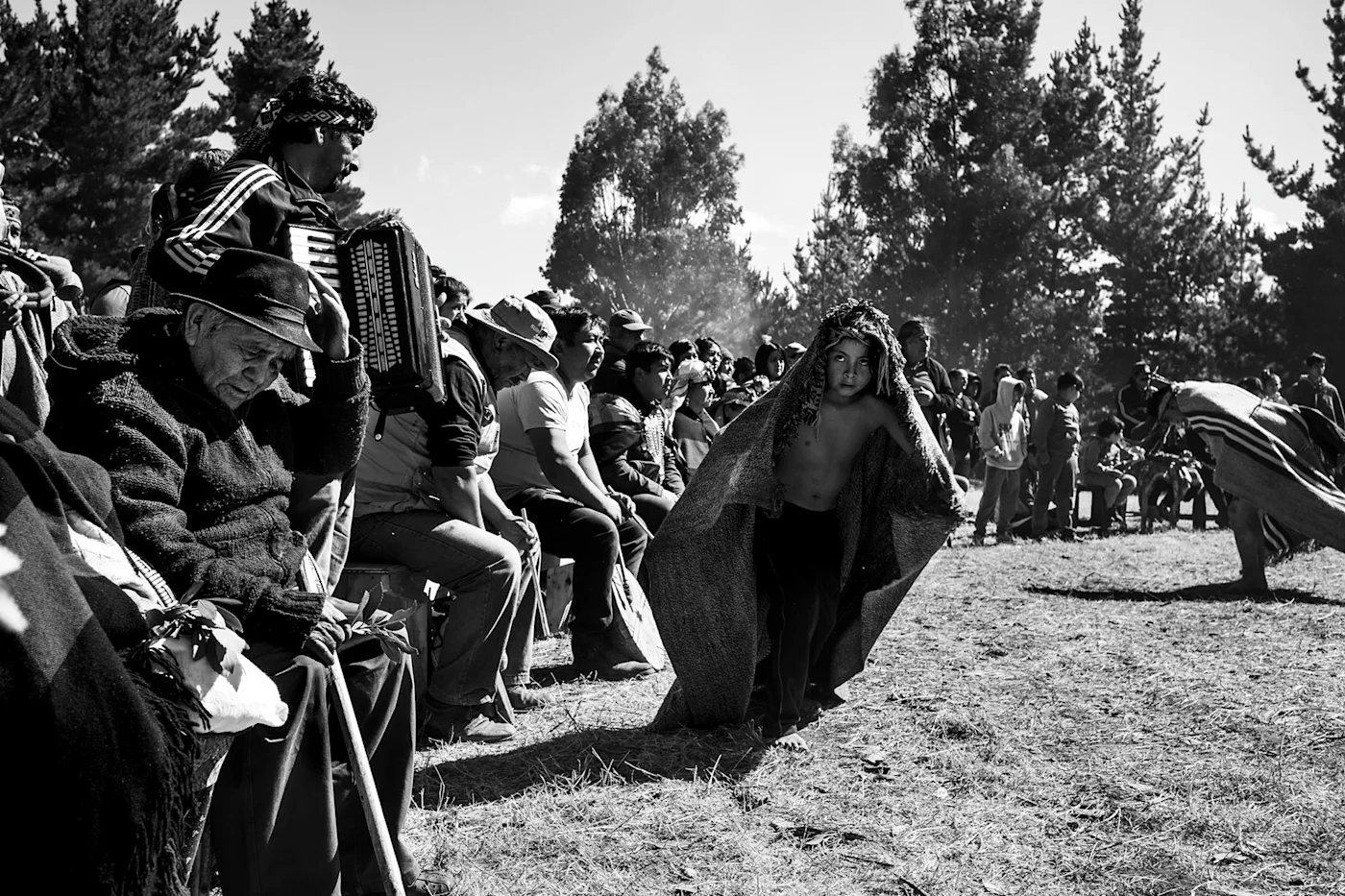
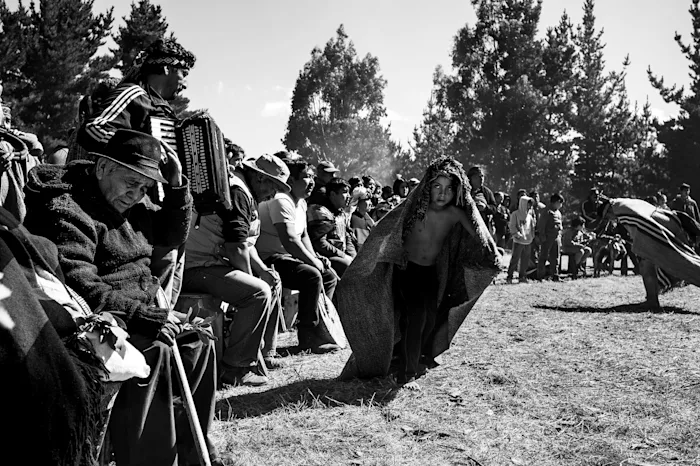
In sum, the operation of the Convention could have sucked, and yet it sought, with some success, to maintain open, continuous, and decentralized channels of participation. The actual impact of these modes of participation, although relative, is much greater than anything we’re used to — not only since the dictatorship, but perhaps in the country’s entire history, with the exception of the period during the Unidad Popular. In any case, the results of the process remain open and uncertain, and tensions are accumulating.
It has been striking to notice how the justified suspicion displayed toward all institutions inherited from the ruling colonial and neoliberal bourgeoisie contributed to sharpening the tactical actions and the decentralized development of strategic horizons. And yet, let’s not get lost in naiveté: everything is still unstable and precarious, and this despite the indisputable shift in scale that the politics of autonomous collectives has acquired during the complex passage from revolt to institutional mutation. Indeed, at the gravitational center of the sometimes difficult-to-follow events unfolding since 2019, what we find is fragility and insecurity. It not insignificant, in this sense, that one of the slogans our feminist comrades articulated in 2018 pointed precisely to the precarization of life, or that, in 2022 they claimed, from the other side of the Andes, that “the debt is still with us.”
If the revolts of 2019 were waged against the profitable precarization that is imposed by the self-proclaimed owners of the world with varying intensity on peoples everywhere, the pandemic only made this process ever more evident. It is this global architecture of plunder that produces the exhaustion we resent, this temporality of an end that never ends, and against which the revolts here in Chile and beyond have declared: we will not shoulder the price, neither the debt nor the guilt. Meanwhile, institutional politics has so often shown its impotence, a pure spectacle of capital profiting from ruin, that in a country with our “democratic” history any confidence leaves a bitter taste in one’s mouth. It is therefore unsurprising that so many of those forces that were active during the revolt, and who cautiously went along with the hacking of the agreement that led to the conventional constitution, almost completely withdrew from the first presidential round of elections, especially after the primary that made Gabriel Boric, an emblematic figure of Frente Amplio, the presidential candidate.
The relationship between the groups that make up the Frente Amplio (including Convergencia Social, to which Boric belongs) and other popular and micropolitical forces has been distant since the very beginning. The composition of Frente Amplio, which consists mostly of well-educated people, some related to academic institutions, has positioned them as a renovated moderate-leftist elite rather than an organic representation of traditionally excluded sectors. It seems possible, nevertheless, to believe that their position has, at the same time, facilitated both a degree of autonomy of the powers that converged in the October revolt and, on the other hand, the fragile yet progressive emergence of a different form of relationship with representation.
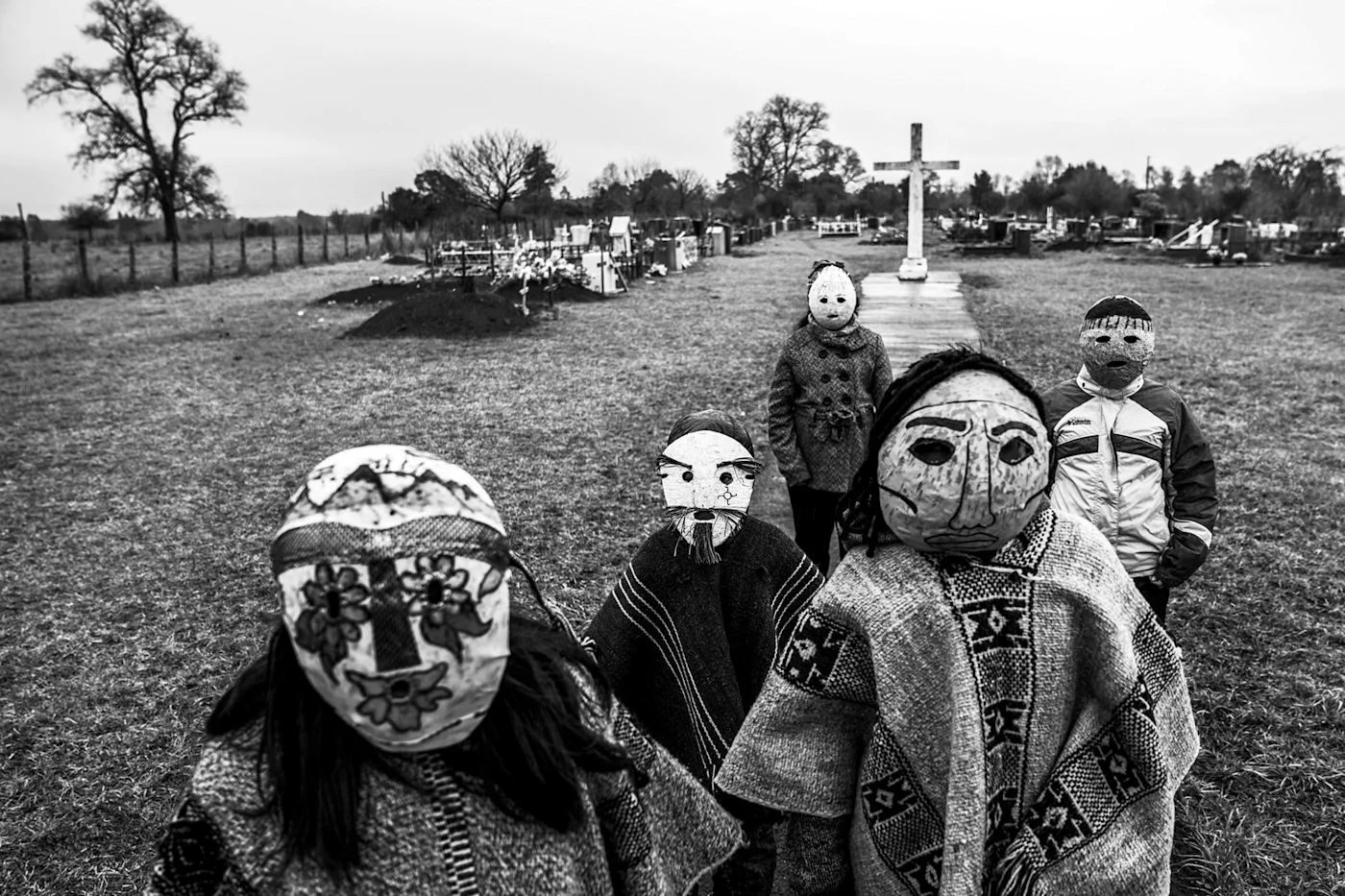
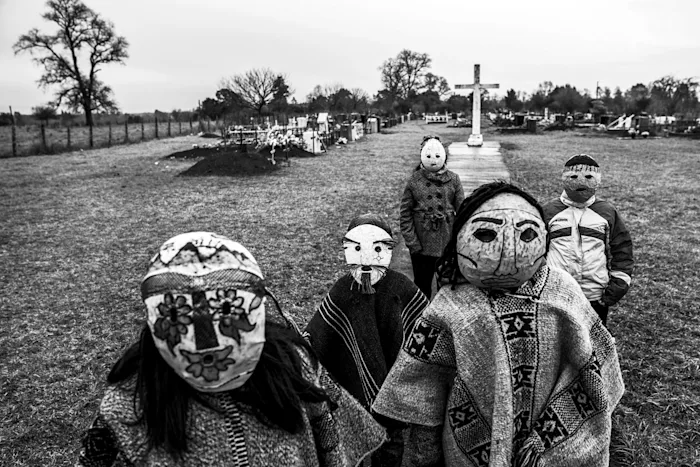
The first presidential round on November 21, 2021 projected a victory for the far-right candidate, "the Nazi Kast” as he is often called on account of both his family legacy and his “ideas” about the future. The possibility of such a victory signaled an urgent change in mood among both social movements and unaligned non-political individuals alike. This time, irony played a fundamental role. Not as a cynical reaction against impotence, but rather as a tactical and technical offensive. Neither Gabriel Boric nor his supporting coalition (Apruebo Dignidad) could count on sympathy, trust or charisma to win the second ballot by themselves. In fact, Boric had even been publicly and violently ejected from a march in December of 2019 over his role in the N15 agreement. However, the dichotomy between a “Nazi” candidate and Boric created room for an ironic treatment of the latter’s figure, allowing relationships to be woven between the various leftist forces and the institutional anchor. Social media and WhatsApp groups overflowed with memes, GIFs and stickers — a veritable becoming bot of the heterogenous political agents that led to a sizable influx of forces that had been absent from the first ballot campaign. It was social, feminist, and environmentalist movements that enabled Boric’s victory, by contributing 1.2 million votes that were not present in the first ballot.5 In that moment, galvanized by the real threat to the constituent process that a Pinochet-supporting government would have entailed, we saw the emergence of a form of support that abstained from fascination as well as from the logic of "lesser evilism." By establishing an ironic relation with both the candidate and his coalition, another form of relationship with representation was built. The announcement of Boric’s victory on Election Day was met with collective joy, as the streets of Santiago and other cities were suddenly filled with thousands of people. The little habit of having reasons to rejoice gave rise to many encounters, conversations, hugs, and shared perspectives. The specular and spectacular relationship with the elected president was still in the minority, and had been traversed by an urgent need to protect and take care of the constitutional convention whose commissions had, by then, only just begun discussing any matters of substance. This has since shifted quite a bit.
Victory is not a moment, dignity is not a text
As we write this, the presidential transition day of March 11th, 2022 has finally arrived. The departure of the criminal Sebastián Piñera, who had remained in office thanks to the protection of the November 15th agreement initiated by Convergencia Social, was reduced to insignificance by the inauguration of the Boric administration, which comprised figures formerly associated with the university mobilizations of 2011, such as Camila Vallejo and Giorgio Jackson, as well as a panoply of names ranging from survivors of the former Concertación and Nueva Mayoría (including members of the Socialist Party and The Party For Democracy) to independents, militants of the Communist Party, and Convergencia Social. In sum, we saw the configuration of a new Chilean social democracy.
In a country where, for decades, everything that was not neoliberal or autocratic was considered impossible, irrational, unreal, as either a cloud of hippy smoke or the daydreams of a criminal (according to the degree of racialization involved), this new configuration is quite interesting. Provided, however, that no attempt is made to establish any direct relationship between electoral time and the time of political configuration. It’s always been this way, but it still bears repeating: the pact that gave rise to the constitutional convention was not an organic result of the 2019 revolt; the election of Boric, his conglomerate and his administration is not the expression, at an institutional level, of the heterogenous forces that took to the streets and shattered the postdictatorial “measure of the possible.”6 These distances and tensions, we repeat, can only facilitate and favor the instances summoned along the process, so long as both fascination and anticipatory defeatism (particularly on the side of autonomous political forces) are conjured and kept at bay.
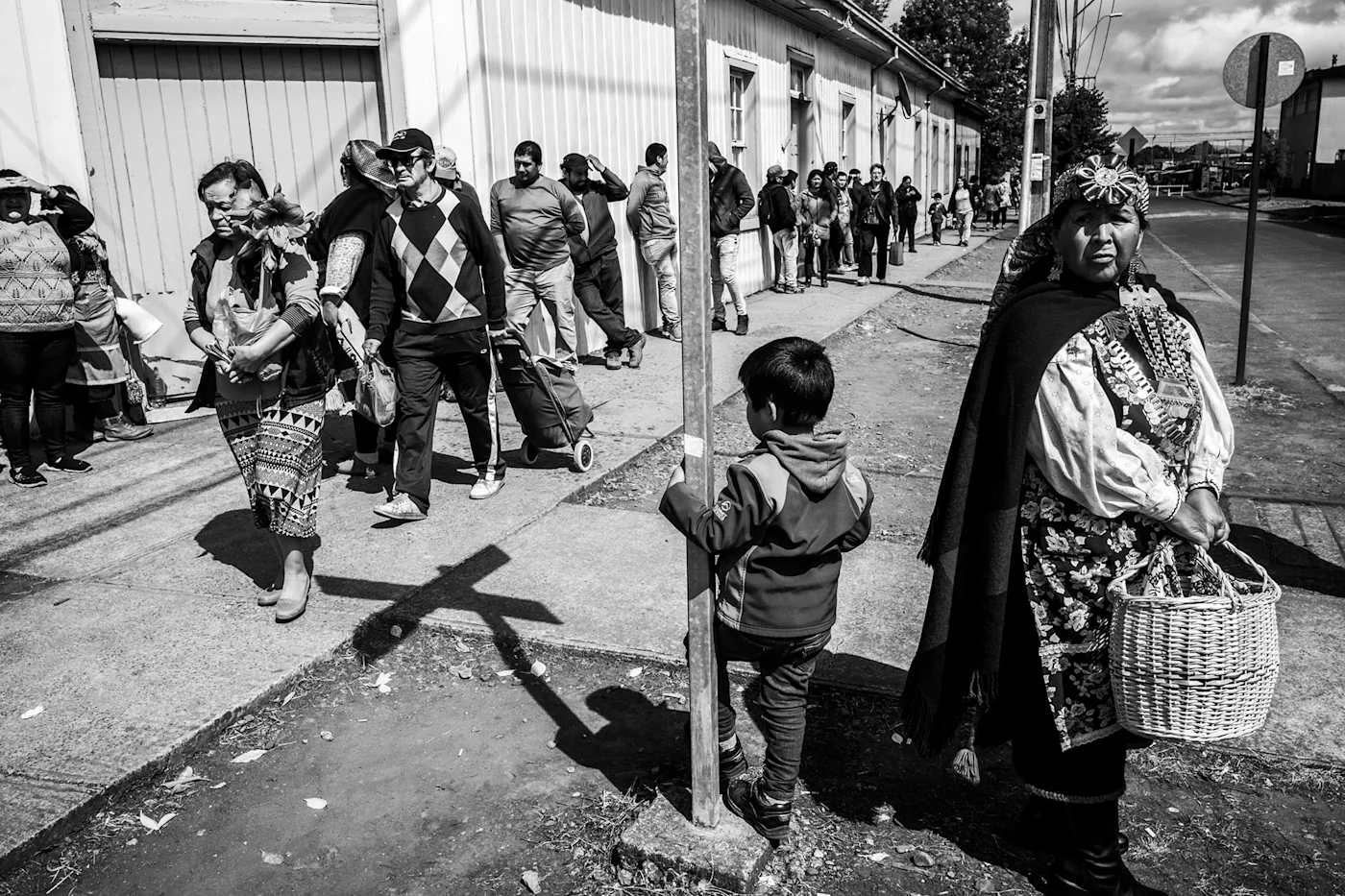
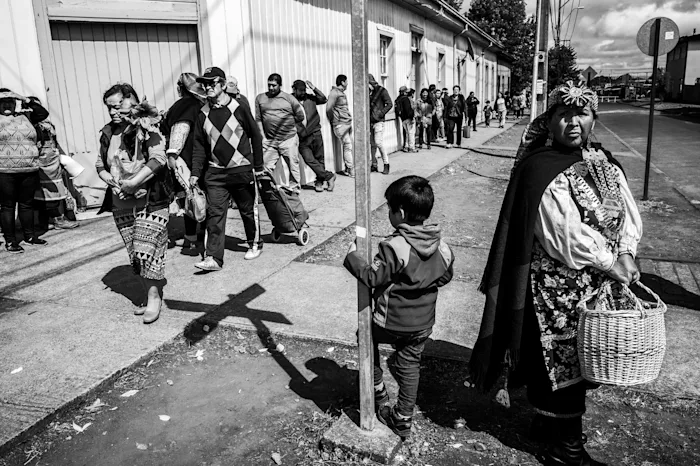
Of course, both fascination and anticipatory defeatism are completely understandable. The first hours of Boric’s administration have already been steeped in symbolism: i) Maya Fernández, granddaughter of Salvador Allende, took office as Minister of Defense; ii) in the inaugural act, the president not only to payed homage to the statue of Allende, “el compañero presidente,” but also manages — from the glasses he wears, to the incorporation of Allende’s famous slogans such as “the great avenues will open again” in his public speech — to make sure something, although not everything, about him evokes his figure; iii) for the first time in history, the police aide-de-camp is a woman; iv) the average age of the government cabinet is 49 years old, while 7 of them are younger than 40; v) the composition of the cabinet is majority women; vi) for the first time in 30 years, a teacher will serve as the Minister of Education, a feminist will be the Minister of Women, and an environmentalist the Minister of Environment; vii) the day before the transition, Izkia Siches, former president of the medical association Colegio Médico and now Minister of Internal Affairs announced that 139 charges filed under the Internal Security Law against the political prisoners of the revolt, who had been deprived of freedom, would be dismissed; viii) during the days prior to the presidential transition, Boric and his partner and First Lady, Irina Karamanos, also a feminist activist, moved their residence to Barrio Yungay, a traditional neighborhood in downtown Santiago that survives amidst gentrification, migration, and drug trafficking; ix) the president of symbols named his adorable dog the country’s official pet, and made him an Instagram profile, because…why not?
And yet, many of the current political prisoners of the revolt are still charged with common crimes. Others are charged with the “manufacture of incendiary material” (a typical way of referring to Molotovs) or even “attempted murder of a law enforcement officer.” The aforementioned announcement regarding the 139 charges is a nice gesture, but one whose implications will likely be considerably less than what they appear. Most significantly, the announcement doesn’t include any shift in the standards of justice in relation to the political violence that is necessary not only to sustain a revolt, but also to stay alive in the face of the war that Piñera had declared against the rebels. Furthermore, Chile is currently harshly militarized both in the north and south, with several ongoing states of emergency. In the north, the main problem is ostensibly migration, particularly of people coming from Venezuela; in the south, in large areas of the territory that the Mapuche communities call wallmapu, forestry companies and their endless greed continue to renew a process of colonization initiated 500 years prior, unstoppably appropriating the lands, destroying everything they touch and causing the emergence of an increasingly tenacious resistance against which the State has long responded with military aggression. Regarding the first situation, Boric has proposed to extend the current state of exception, whereas for the latter, he announced it will not be extended again, at least “for now.”7
A similar exercise could be carried out with each of Boric’s announcements, as every gesture seems to be disproved in advance by the weight of history. The president of symbols provokes hope and distrust in equal measure. One of the sad problems of the hopeful, who rose like foam once the ironic communicational strategy turned towards fascination, is that it is often accompanied by an equally quick capacity to be disappointed, and can throw one into a reactionary nihilism. On the other hand, mistrust and suspicion are prevalent on both sides, left and right. The right-wing suspicions are obvious and grotesque, and boil down to the fact that they might no longer be the “landlords'' they've always been, or to maintain their alliances with big capital to plunder without consequence8 — everything we know so well, everything against which so many have stood up and continue to do so. However, the issue of leftist distrust is crucial. This is the final thing we would like to say: if there’s anything we can learn from the complex continuity of insurrectional, destituent, constituent, or restituent, etc. processes, it’s that it is not necessary to trust in the prevailing institutional framework in order to make use of it. In other words, even though the master’s tools will never dismantle the master’s house, they might allow us to corner him, to “occupy the house with people inside” and, in that way, insha’allah, enable the unfolding of other modes of life and thought.
To our friends and los-otrxs
We must distrust, we must be cautious, we must step carefully. We must not yearn, for better or for worse, for a Constitution that would inscribe an ideal society, that is, that would juridically eliminate all forms of antagonism. For the same reason, “victory” must not be considered a moment. We cannot say “we won” in past tense, as we confront the historical weight of an institutional framework made and actualized by excluding all elements once considered risky for the horizons sustained by the colonial, neoliberal, patriarchal, extractivist, and landowner oligarchy.
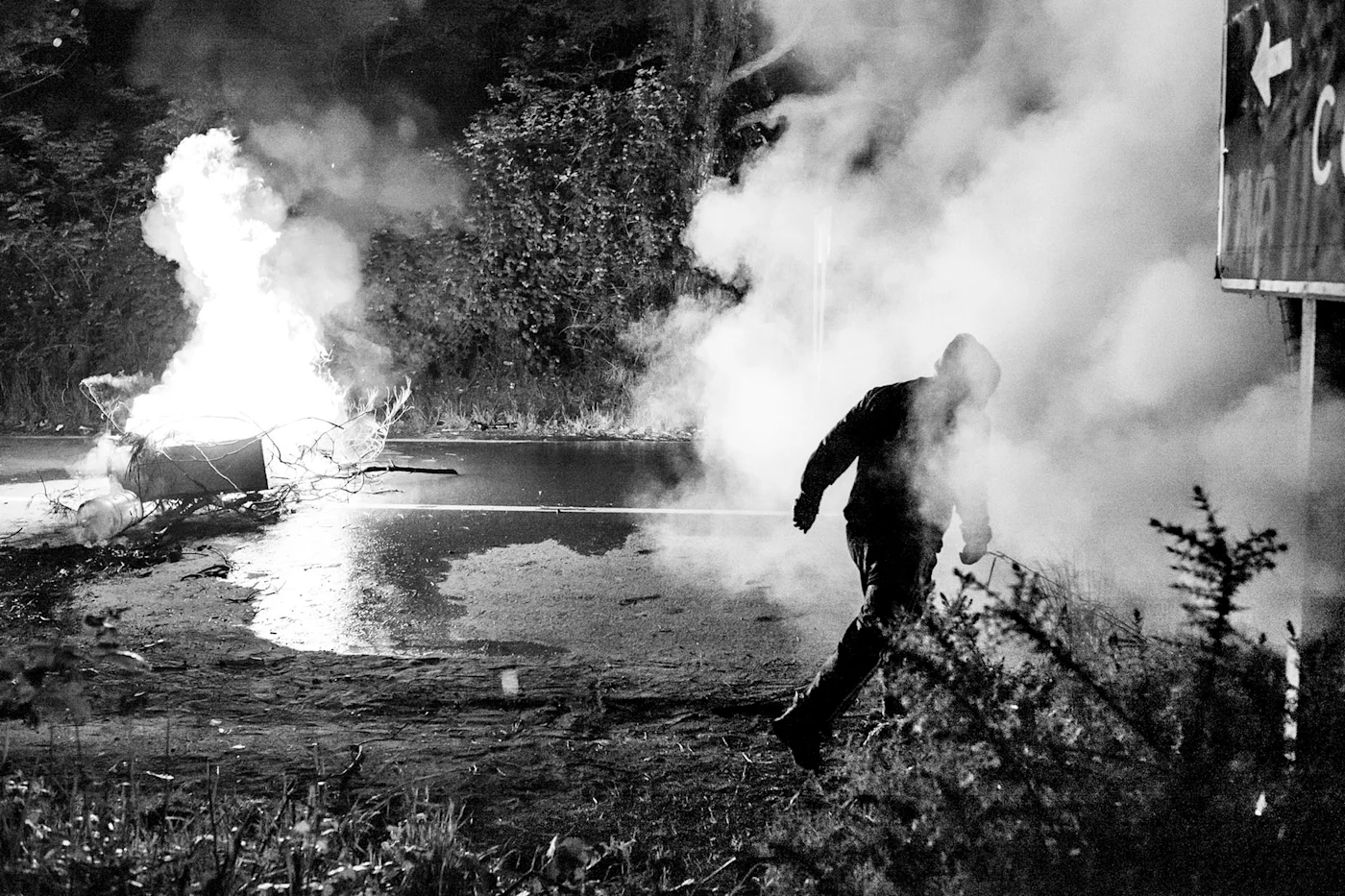
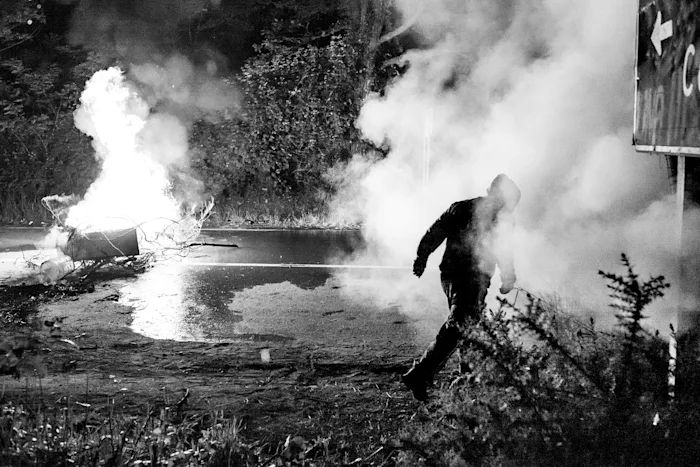
In the same way, we must distance ourselves from positions that are already defeated. At least part of the proliferating tensions of the left(s) are presently housed within both the constitutional convention and the ‘progressive’ government. To those friends of ours, more or less close, who now declare yourselves officials, with more or less power, may you have the humility to recognize that you are not the resolution of revolt’s forces, and above all, may you not seek to attenuate or persecute these same forces when they remind you of this fact on the streets. To our friends, more or less close, who have transitioned from disbelief to hope and fascination, may you have the tranquility to recognize its limitations and, consequently, to not shut down criticisms coming from the left by accusing them of treachery, only to then throw yourself into the spectacle of nihilism and impotence upon the first signs of failure. To us, lxs-otrxs9, who have attempted in various ways to open other forms of militancy in order to build other modes of living, may we find a way to act cautiously, to develop a strategic proximity, the contagion of another mode of relationship with representation and, above all, may we actively avoid allowing our forces to be devoured or trapped-up in the spiral of institutional time. May we take advantage of the tensions of the process: its dissimilar trajectories, the relations of complex continuity between revolt, convention and government, so that we may give consistency to an autonomous terrain of politics; may we construct the infrastructure needed, beyond the electoral cycle, for the deployment on the social plane of the desire for radical transformation. It’s up to all of us, in one way or another, to beat back fascism in all its expressions. Fascism that is here, waiting for mistakes to be made, waiting for disputes, attentive to the neutralization of the left’s critical politicization in order to lead every problem into the deathbed of its own senile and anxious drive to keep everything the same as it was, so as not to pay for what they have done, for what they still seek to perpetuate. We must not look to the Constitution or the current government for the resolution of it all — the end of politics, once again. Instead, we must seek out possibilities to continue our struggles, under better conditions and with more diverse weapons, so that amidst all these complexities, we can snatch the administration of the ruins away from them and give consistency to the organization of social autonomies through which we might not only survive the catastrophe, but also recompose the possibility of the pleasure of living together, with dignity.
March 2022
Images: Pablo E. Piovano
Notes
1. A traditionally elitist district, part of the famous “3 districts” of the Metropolitan Region where the rejection to the Constitutional Convention won. ↰
2. “No es sequía, es saqueo” (“It is not a drought, it is looting”) was one of the slogans during the 2019 demonstrations. It’s based on a pun between sequía (drought) and saqueo (looting). ↰
3. An English-language overview of the two systems can be found here. —Trans. ↰
4. Their complaints can be read here and here, where they democratically threaten to retire from the convention after seeing the first norms being approved. ↰
5. Elections in Chile are voluntary, which implies that the actual total number of voters varies in each election. A good analysis of this specific victory can be read here.↰
6. On this point, see Vitrina Dystópica, “Ese futuro que es catástrofe arde en Chile. Vitrina Dystópica y Bifo en Berlín,” Dystopica, November 2019. Accessible in English here.↰
7. Before leaving office, Piñera was able to secure its extension until March 26, 2022. Regarding the new administration see Felipe Reyes, “Izkia Siches no descarta Estado de Excepción en gobierno de Boric: ‘Nada está escrito en piedra’," BioBioChile, March 3, 2022. Online here. ↰
8. Even 10 days before leaving office, Piñera once again introduced as a matter of urgency a project adhering to the famous TPP-11, which basically privatizes the justice systems in ad-hoc courts defined by companies. This is the 31st time that this project has been accorded the utmost urgency.↰
9. “Losotro’” has traditionally been a colloquial, “badly said” way of saying nosotros (we/us). “Los otros (lxs-otrxs in gender neutral)”, the others, sounds very similar to “losotro’.”—Trans. ↰